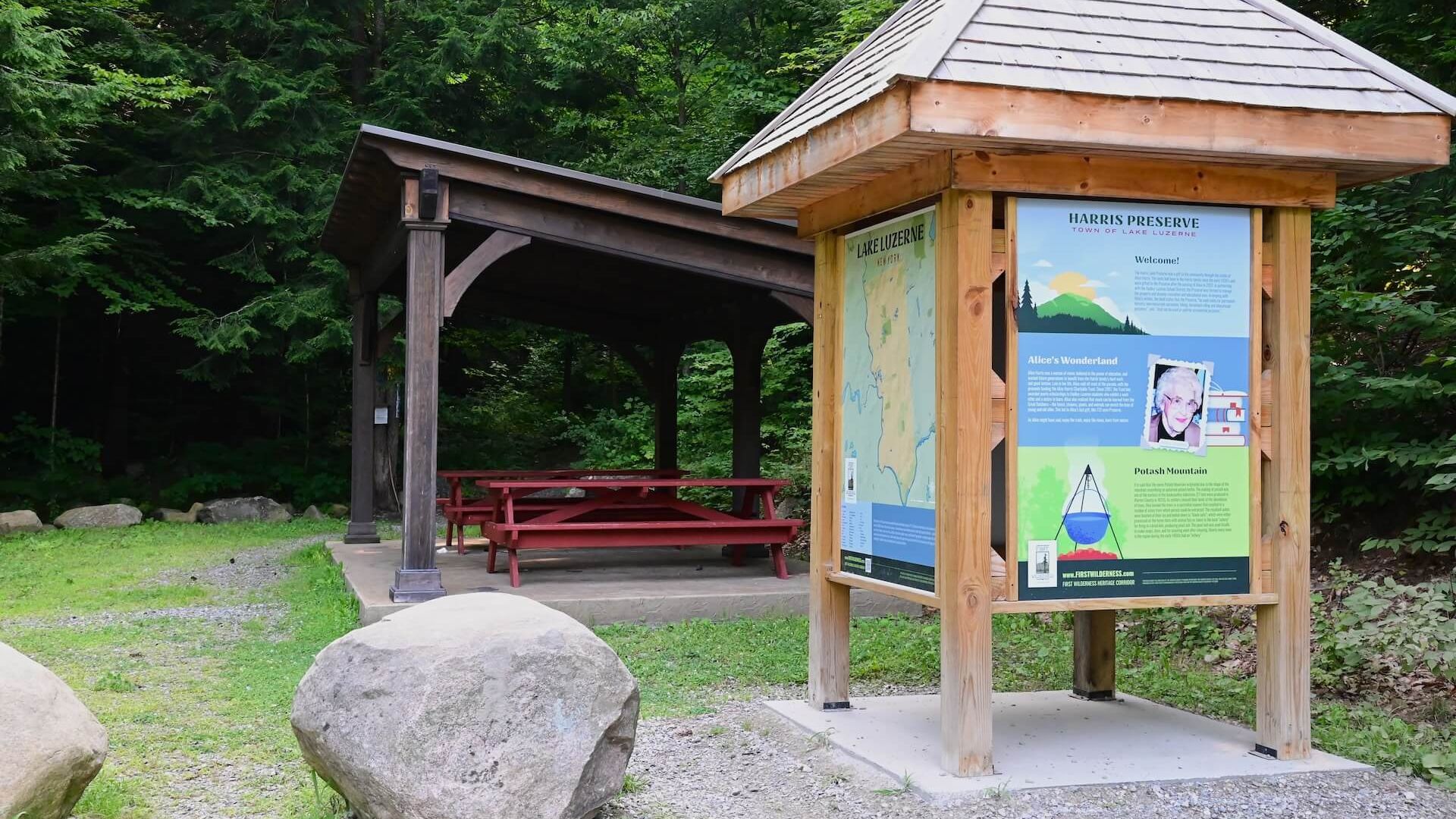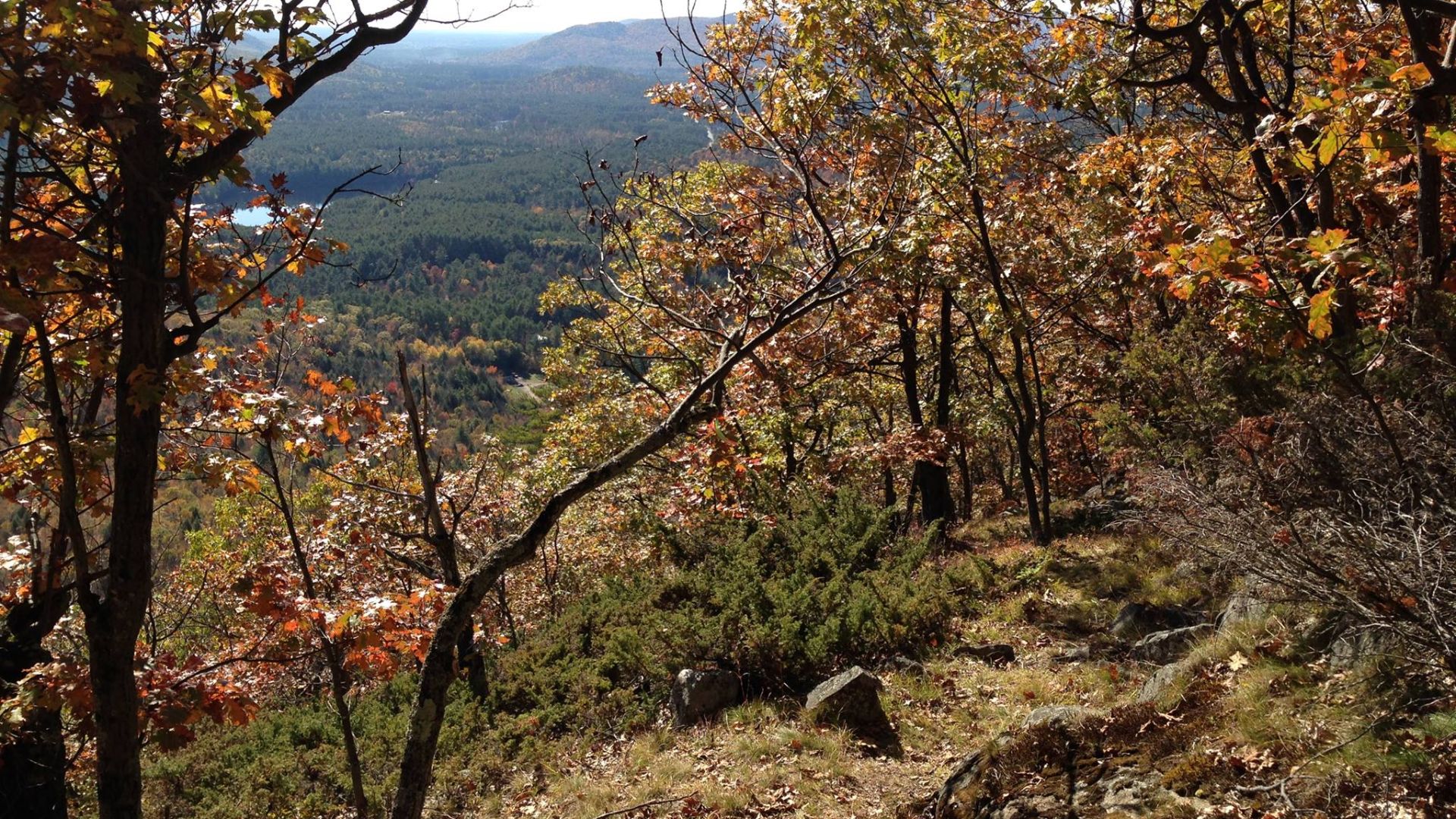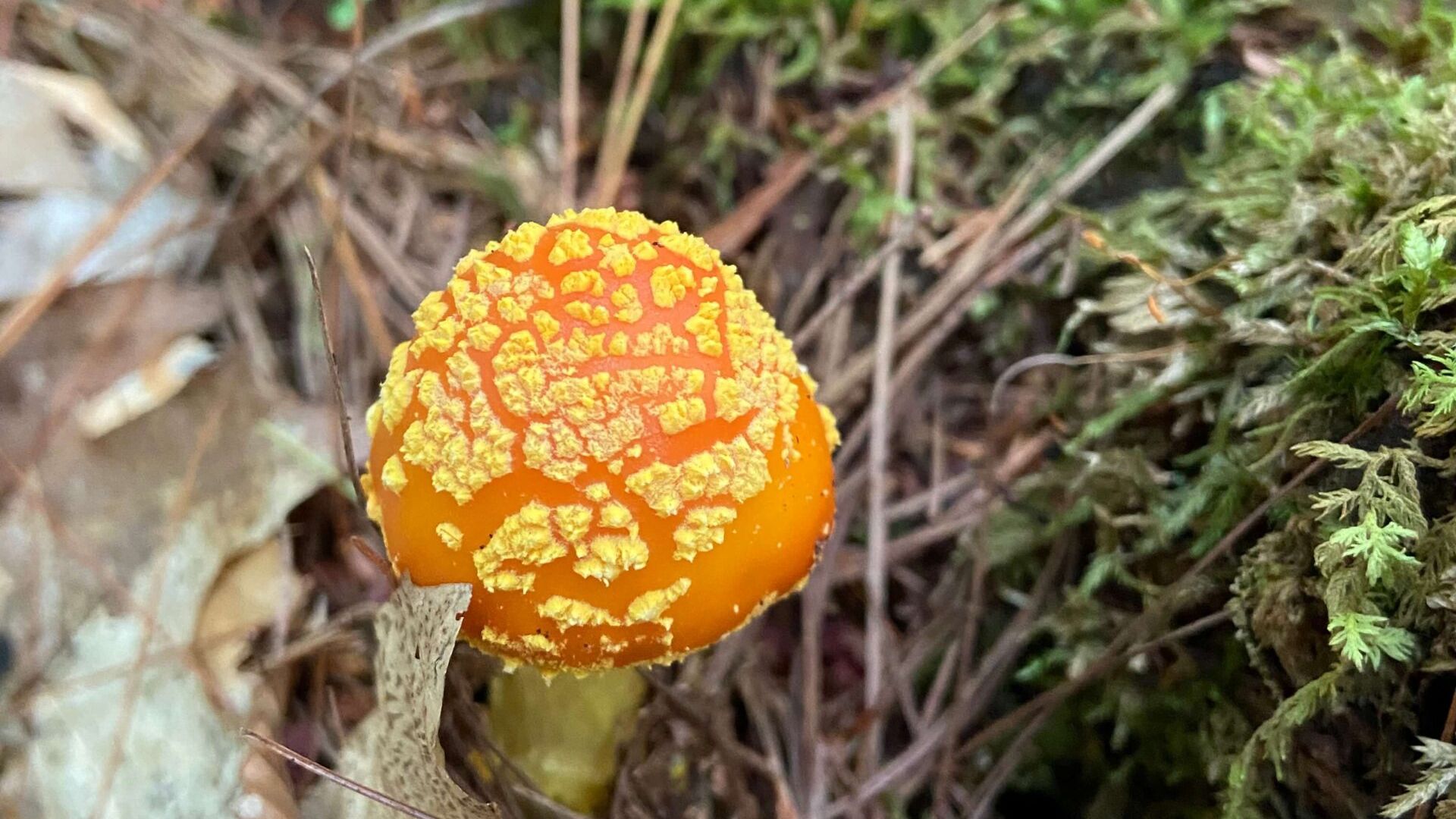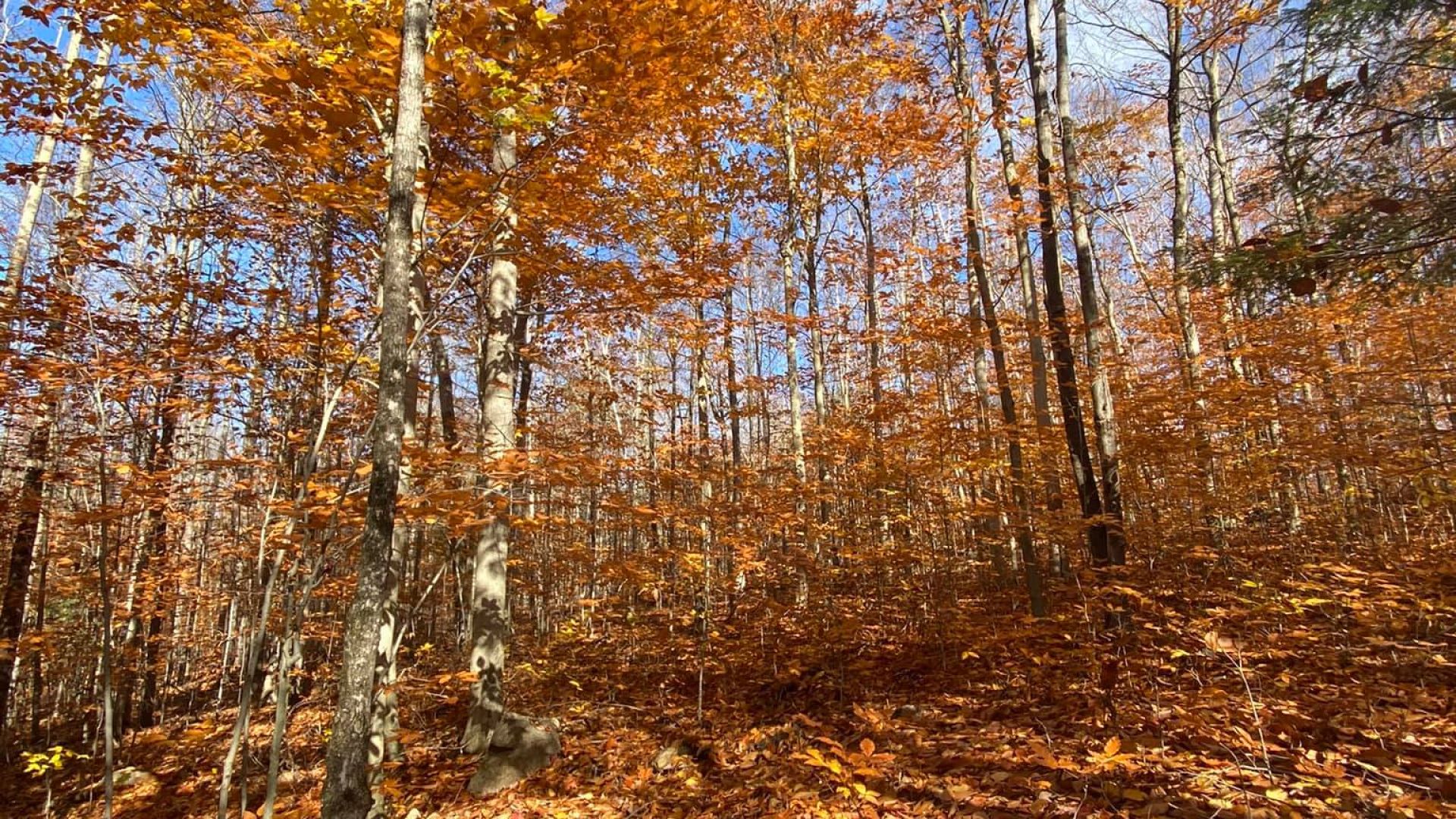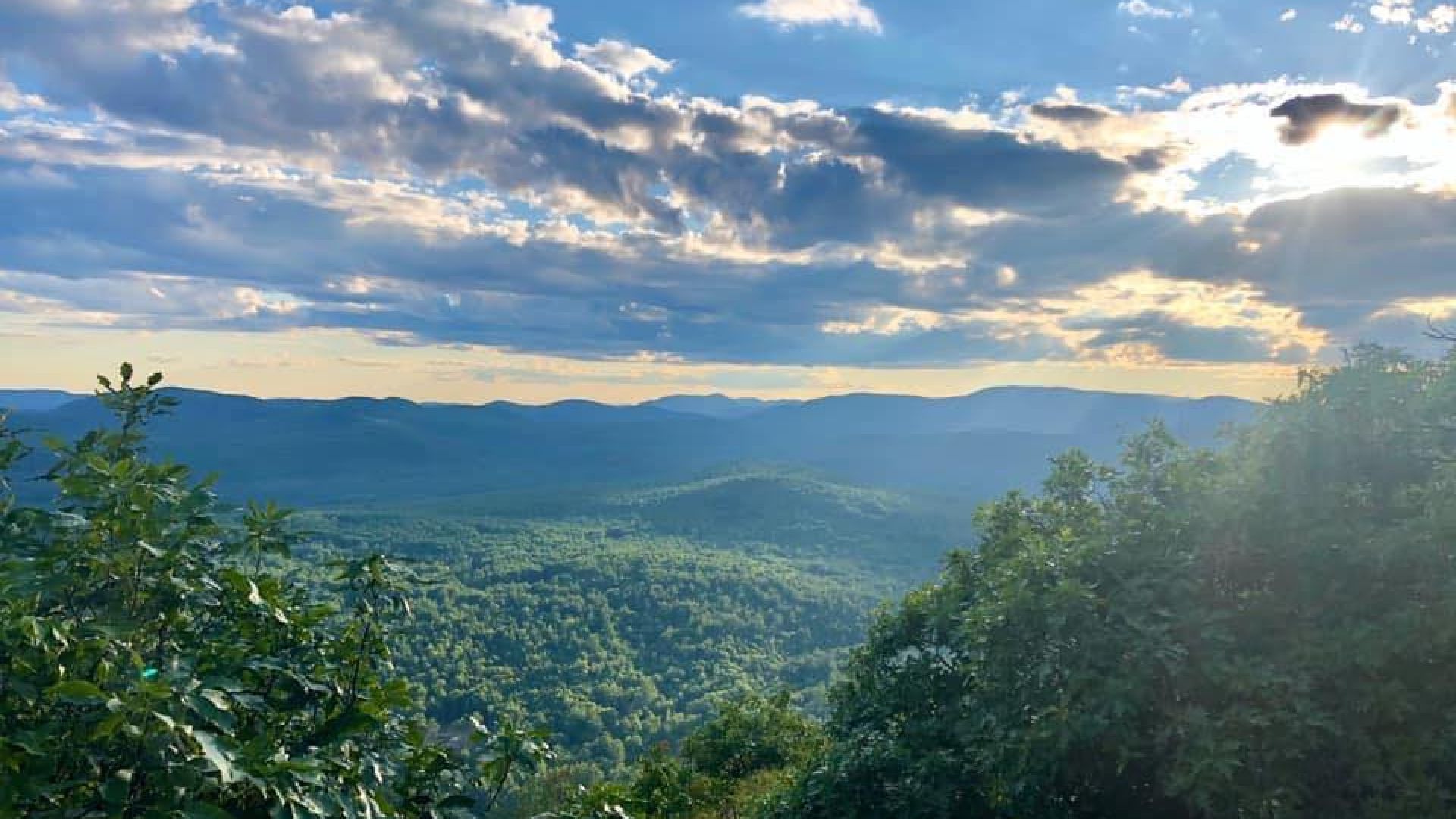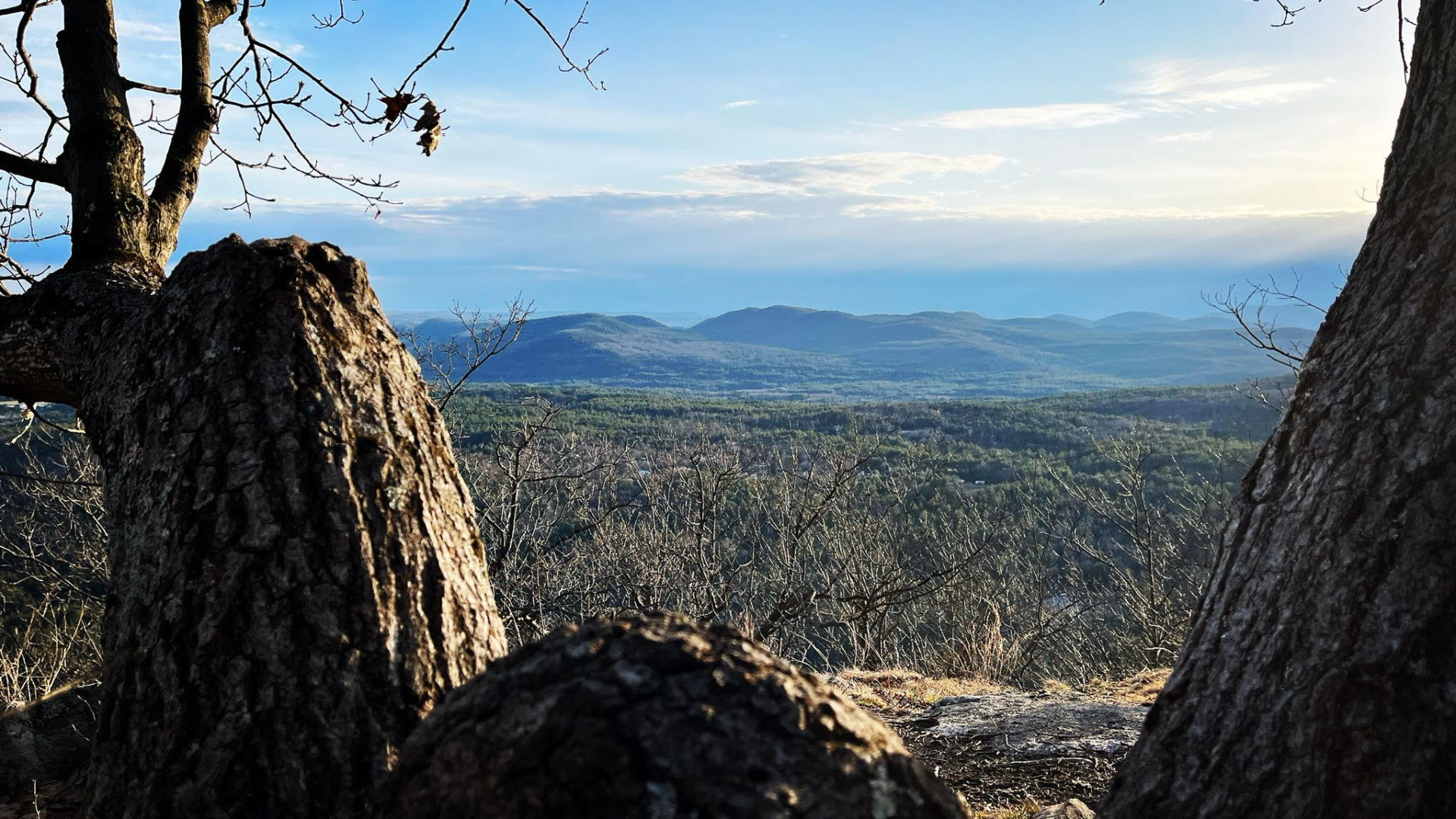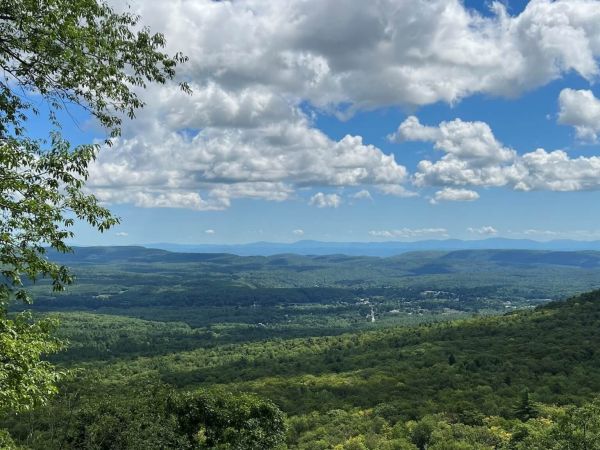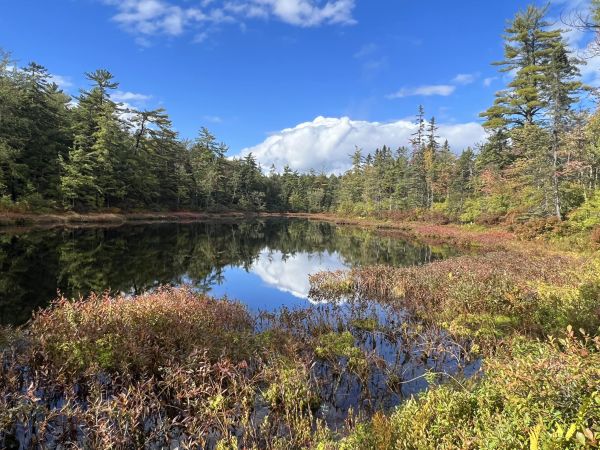Potash Mountain Trail
The Potash Mountain Trail in Lake Luzerne is a moderate to difficult hike offering stunning views of the Adirondack Mountains and Lake Luzerne. This 3.26-mile round-trip hike features a mix of steep climbs, rugged terrain, and dense forests, rewarding hikers with panoramic summit views. For those looking to extend their hike, the Nature Trail adds a relaxed loop that showcases the local trees and ecosystems. Rich in both natural beauty and history, Potash Mountain provides a fulfilling experience for outdoor enthusiasts of all kinds.
Photo by Becky Gurney.
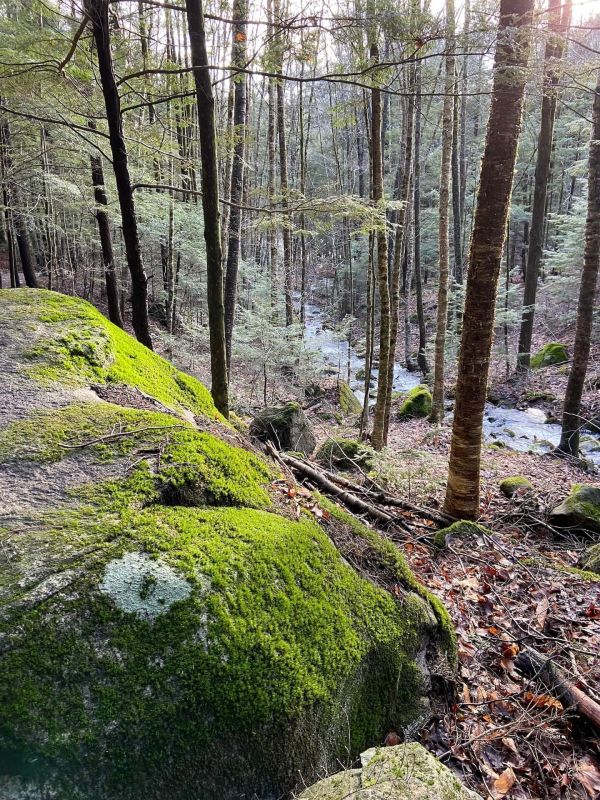
Photo by Elaine Winslow.
Discover the Potash Mountain Trails
The Potash Mountain Trail features two distinct loops, offering varied hiking experiences. The Summit Trail (3.26 miles) is a moderate to difficult climb with an elevation gain of 1,033 feet, rewarding hikers with panoramic views of the Adirondacks and Lake Luzerne. The shorter Nature Trail (0.7 miles) provides a more relaxed loop with educational signage about the area’s trees, ideal for a peaceful, informative walk. Both loops can be combined for a well-rounded hike, balancing challenge with scenic serenity.
and 0.7 mi
1,033 ft
Difficult
Take the Northway to Exit 21. Turn left and head south on NY-9N towards Lake Luzerne. After approximately 6.7mi turn right onto Potash Rd. The trailhead and parking will be on your right after about 0.5mi.
Plan Your Route
Potash Mountain Trail
Trail Highlights
Potash Mountain offers a moderately challenging hike that leads to a stunning summit with panoramic views of the surrounding mountains. At the top, the trail loops around for a smooth descent back down the mountain. For extra distance and an educational experience, explore the Nature Trail, where you’ll learn about the local trees and ecosystems.
Yet have no art to say—
So impotent Our Wisdom is
To her Simplicity.
— Emily Dickinson
Trail Rules
Before starting your hike on the Potash Mountain Trail or the Nature Trail, please review the trail rules to ensure a safe and enjoyable experience for all. These guidelines help protect the environment and preserve the beauty of the area for future visitors. Adhering to these rules helps ensure that the environment remains pristine and that everyone can enjoy the breathtaking views and history that Potash Mountain has to offer.
-
Stay on marked trails to protect the environment and minimize damage.
-
Carry in, carry out all trash and pet waste.
-
Well-behaved dogs are welcome, but they must be kept on a leash at all times.
-
No motorized vehicles are allowed on the trails.
-
Open fires & campfires are prohibited.
-
Hunting is not allowed on or near the trail.
-
Keep a respectful distance from animals and avoid feeding or disturbing them.
History of Potash Mountain
Potash Mountain holds a deep historical connection to the early settlement and development of the Lake Luzerne area. Prior to the Revolutionary War, the land, which included modern-day Lake Luzerne, Hadley, Corinth, Warrensburg, Thurman, Chestertown, and Johnsburg, was acquired by brothers Ebenezer and Edward Jessup. While it’s unclear if they named the mountain Potash Kettle, early records suggest the name could have derived from its unique shape, which resembled an inverted kettle—a feature recognized by the Mohawk people, who called the mountain Senongewok.
The name “Potash” likely refers to a vital potassium compound that was America’s first industrial chemical. Used extensively in agriculture as a fertilizer, as well as in the production of soap, glass, textiles, and ceramics, potash was a crucial commodity for settlers in the region. Early settlers made use of the abundant trees by clearing land for farms, burning logs, and collecting the ashes to create potash. The process involved leaching the lye from ashes with water and boiling it down to create “black salts,” which settlers could sell or use for various purposes. This practice was nearly universal among early farmers and served as an important source of income as they developed the land.
Potash Mountain and its name stand as a testament to this early industry, and today, it is a community peak that connects visitors to the rich history of the Lake Luzerne area. You can learn more about the area’s heritage through exhibits at the Frances G. Kinnear Museum of Local History, home to the Hadley-Lake Luzerne Historical Society, which showcases artifacts like old postcards of the mountain labeled as “Potash Kettle Mountain.”
For further historical context, see Dan Forbush’s work, “Potash Mountain: Lake Luzerne’s Community Peak,” which provides detailed insight into the area’s transformation from early settlements to the bustling town it is today.
Take the Challenge
Are you ready to conquer the outdoors? Register for the Gateway 8 Challenge and explore Saratoga and Warren County’s most scenic hiking, biking, and paddling routes. Whether you’re a seasoned adventurer or new to the trails, this challenge offers the perfect mix of stunning views and physical achievement.
Lace up your boots, grab your gear, and start your adventure today!
